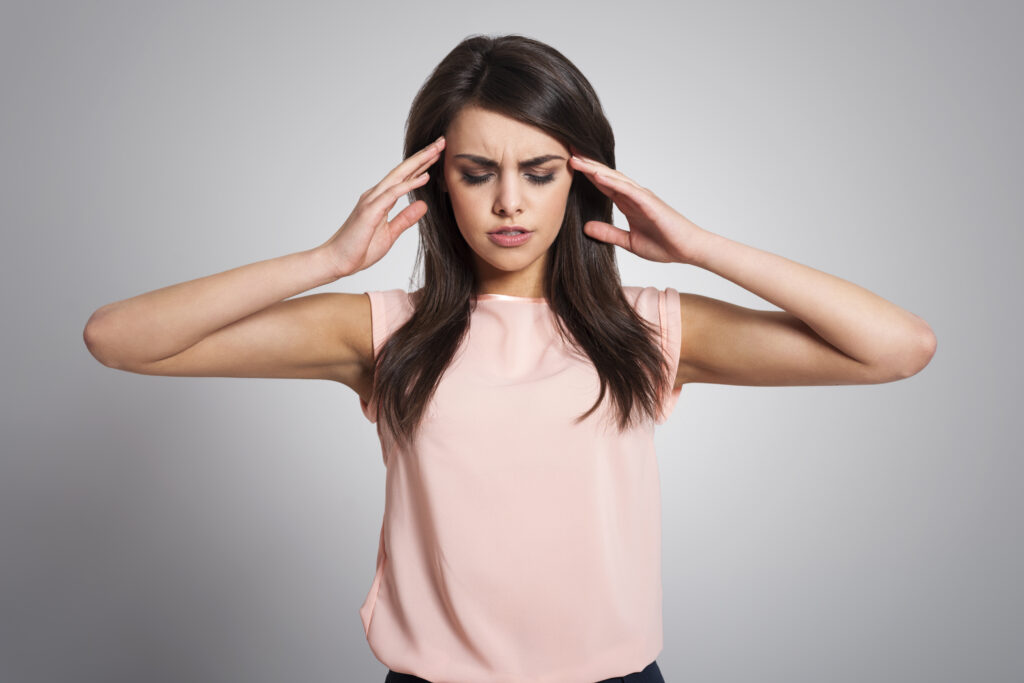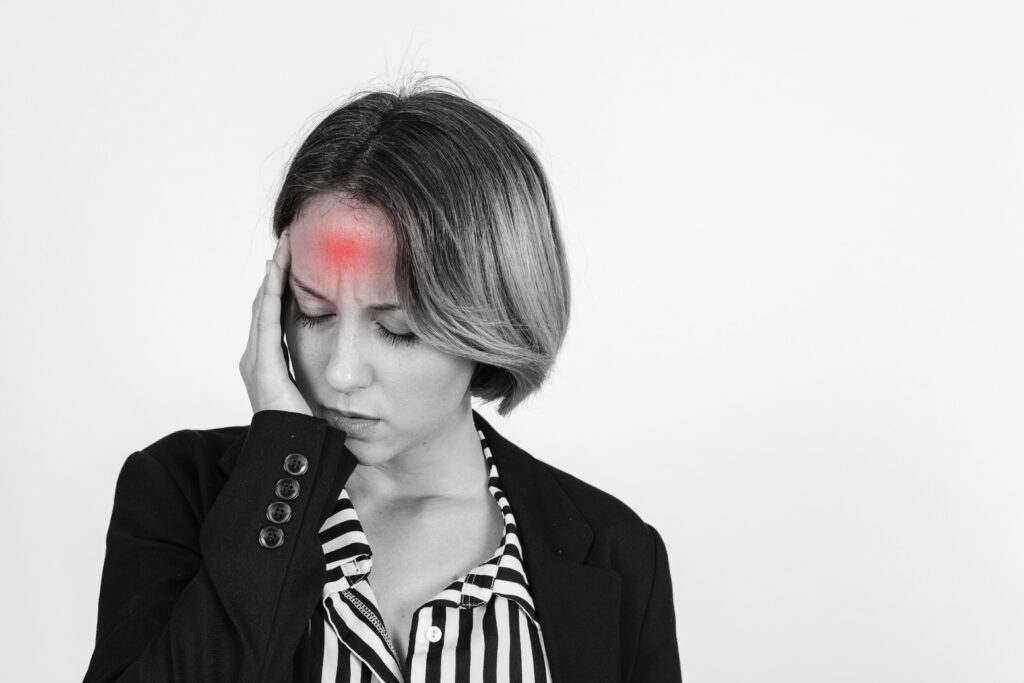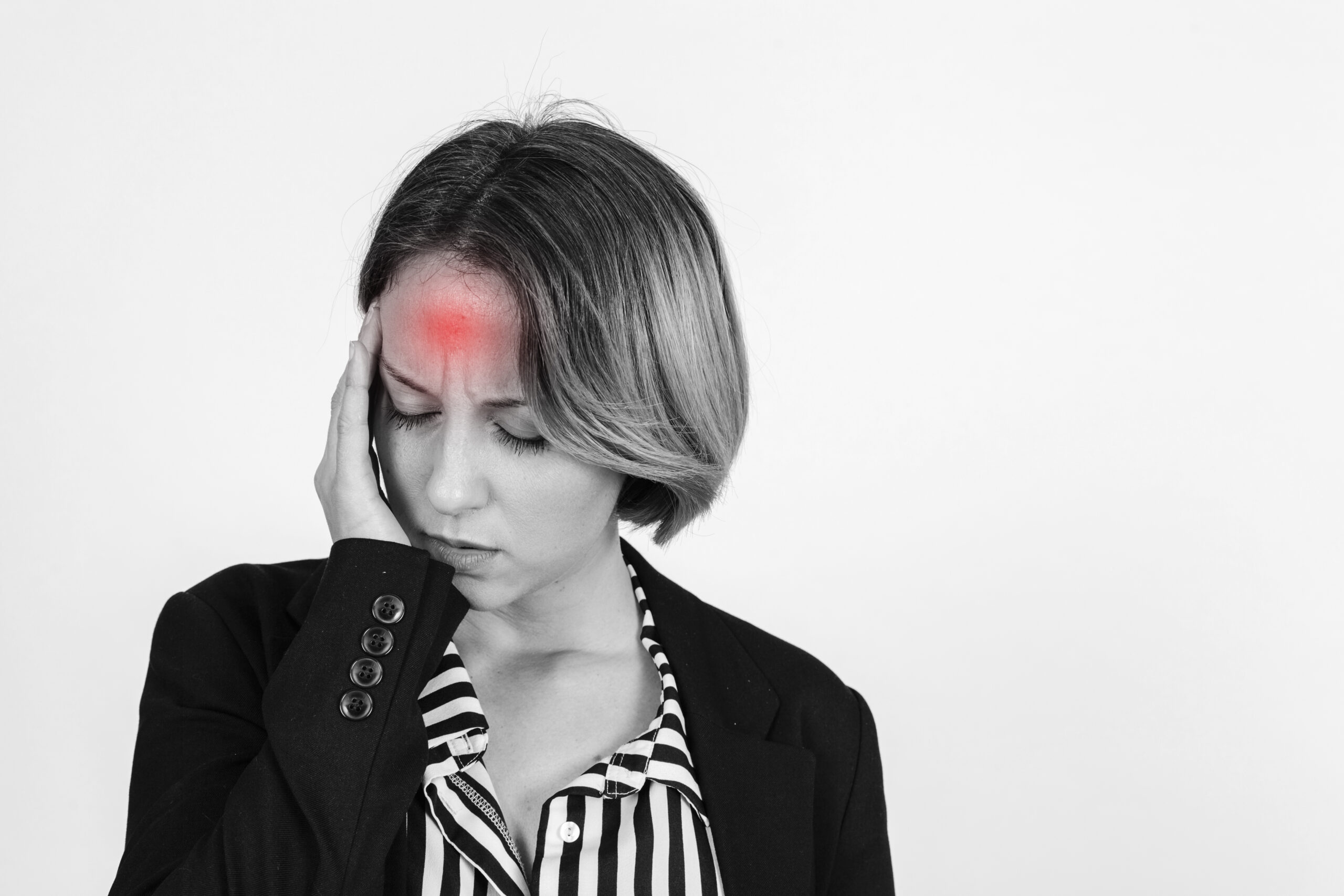Wondering How to cure a headache? Discover natural remedies and quick fixes to conquer common headaches, from tension to dehydration. Many natural remedies for headaches can be used at home, such as drinking water, napping, using a cold compress, and more. Learn how to prevent future headaches and when to see a doctor.

Struggling with constipation? Do checkout.
There are many different kinds of headaches, the most prevalent of which being tension headaches. Migraines are a form of headache that ranges from moderate to severe, but cluster headaches are intense and occur in groups, or “clusters.”
Headache symptoms can be effectively treated with a variety of pharmaceuticals, but there are also several efficient natural remedies.
For a list of 10 efficient natural headache cures, continue reading.
Causes of headaches: to know how to cure headaches you must what causes are
- Stress
- Undereating
- Muscle tension
- Dehydration
- Lack of sleep
- Certain foods and drinks, such as alcohol, caffeine, and processed foods
- Changes in hormone levels, such as those that occur during menstruation or menopause
- Medication overuse headaches can occur from taking too much pain medication.
Furthermore, certain individuals are predisposed to headaches more than others.
Headaches are more common in smokers, obese individuals, sleep-deprived individuals, and those who use large amounts of caffeine. Additionally, headache disorders are more common in those with a family medical history of headache.
Headache cure home remedies
1. Move more

Being physically active is one of the easiest methods to lessen the frequency and intensity of headaches.
Exercise has been linked to a considerable reduction in migraine intensity, frequency, and duration, according to several studies.
While there are numerous methods to enhance your level of activity, one of the most straightforward ones is to walk more steps each day.
2. Drink water
Research has indicated that headaches are frequently caused by dehydration.
Fortunately, studies indicate that increasing water intake may help some people experience fewer headaches, as well as shorter ones that are less severe.
Furthermore, dehydration can exacerbate symptoms by impairing attention and increasing irritation. Focus on consuming foods high in water, such as fruits and vegetables, and drinking adequate water throughout the day to help prevent dehydration headaches.
3. Obtain enough rest

Lack of sleep has several negative health effects and can even give some people migraines.
Studies indicate that headache frequency and intensity are correlated with poor sleep quality and insomnia.
On the other hand, headaches have also been linked to sleeping too much. Thus, for people seeking to prevent headaches naturally, obtaining enough sleep is essential.
4. Avoid foods high in histamine
The body naturally produces histamine, which is involved in the neurological, digestive, and immunological systems.
According to studies, people who are sensitive to histamine may have migraines after taking it.
Some patients have poor function of the enzymes that break down histamine, which prevents them from excreting it adequately.
Eliminating foods high in histamine from the diet may help those who are sensitive to histamine have fewer symptoms, such as headaches.
5. Consume some magnesium
Magnesium is a vital mineral that the body needs for many processes, such as nerve transmission and blood sugar management.
It’s interesting to note that magnesium has also been demonstrated to be a secure, reliable headache treatment.
Research indicates that those who experience migraine headaches frequently are more likely than those who don’t to be magnesium deficient.
For instance, giving migraine sufferers a 600 mg magnesium citrate pill may help them feel less headachey.
When treating headache symptoms, it’s advisable to start with a lower dosage of magnesium supplements because some people may experience digestive side effects like diarrhea from taking them.
6. Use a cold compress to ease discomfort
If you have a headache, applying a cold compress could help.
Cooling or freezing compresses to the area around your neck and head can help lessen headache discomfort by decreasing inflammation, slowing nerve conduction, and constricting blood vessels.
According to studies, people with some forms of headaches, such as those brought on by nitrate medications used to treat heart issues including chest pain, may find relief with cold therapy.
To create a cold compress, put ice in a waterproof bag and cover it with a gentle towel. For headache treatment, apply the compress to the back of your neck, your head, or your temples.
7. Consider implementing an elimination diet
Some people may get headaches as a result of dietary intolerances, according to studies.
whether you have headaches frequently, you might want to attempt an elimination diet where you cut out the items that are most closely associated with your headache symptoms to see whether that’s the cause.
Among the foods that migraine sufferers most frequently list as triggers are aged cheeses, wine, chocolate, citrus fruits, and coffee.
The frequency, length, and intensity of migraine attacks were considerably decreased when migraine-triggering items were removed from the diet, according to a 2016 study involving 50 migraine sufferers.
8. Consider using a natural treatment.
Some herbs, such as butterbur, chamomile, and curcumin, may help with headache symptoms, according to research.
For instance, a 2020 analysis of 19 research discovered promising early results for chamomile as an acute migraine treatment and curcumin as a preventive medication.
The analysis also discovered some evidence that people with migraines may benefit from taking supplements containing butterbur, a perennial shrub native to Germany with anti-inflammatory properties.
While certain herbs are safe to ingest, it’s crucial to use caution while taking them as a supplement because many of them can mix with widely prescribed pharmaceuticals and pose a risk to those who are pregnant or may have specific medical issues.
9. Yoga can help you unwind
Yoga is a great method to reduce stress, improve flexibility, lessen discomfort, and enhance your general well-being.
You might even be able to lessen the frequency and intensity of your headaches by taking up yoga.
In one study, 60 patients with chronic migraines were treated with yoga treatment. When yoga therapy was combined with traditional medical care, headache frequency, and intensity decreased more than when conventional care was given alone.
Furthermore, individuals with tension-type headaches reported reduced headache frequency, duration, and intensity when they practiced yoga, according to a 2020 review that comprised six studies.
10. Grab a handful of ginger
Several healthy ingredients, such as anti-inflammatory and antioxidant components, are found in ginger root.
People with migraines reported less pain while using ginger supplements, according to a 2021 review that included three randomized control trials.
Also, while nausea and vomiting are frequently linked to excruciating headaches, the ginger treatments helped lessen them.
A premium supplement that offers 500 mg of ginger root extract per capsule is Pure Encapsulations Ginger Extract, if you’re interested in taking one.
Fresh ginger root can be used to produce a potent tea as well. Swigging the tea is a healthy method to stay hydrated, not to mention how inexpensive it is to brew.
Tips to prevent headaches
- Control your stress: One of the main causes of headaches is stress. Deep breathing, yoga, meditation, and other relaxation methods can help lower tension and avoid headaches.
- Get regular exercise: Try to get in at least 30 minutes a day, most days of the week, of moderate-intensity activity. In addition to enhancing general health, exercise can lessen headache frequency and intensity.
- Keep your posture correct: Bad posture can strain your head and neck muscles, which can cause headaches. Try to sit and stand up straight during the day, and be aware of your posture.
- Drink a lot of water: headaches are frequently brought on by dehydration. Even if you don’t feel thirsty, make sure to stay hydrated throughout the day. Eight glasses of water a day is the goal.
- Consume a balanced diet: Eating a balanced diet will assist in preventing headaches. Make sure your diet is high in whole grains, fruits, and veggies. Limit your consumption of alcohol, sugar-filled beverages, and processed foods.
- Get enough rest: The average adult requires seven to eight hours of sleep every night. You are more prone to headaches when you do not get enough sleep.
- Limit your use of caffeine and alcohol because these can both cause headaches. It is advisable to minimize the consumption of these chemicals if you are prone to headaches.
There are numerous additional strategies to lessen the frequency, length, and intensity of headaches. A healthcare professional can assist you in creating a strategy that suits your needs.
When to visit a physician
Generally speaking, a light headache once in a while is nothing to worry about, but if you get a persistent, severe headache or headaches frequently, you should definitely consult a doctor.
A tumor, a blood clot, or some major underlying health problem that needs to be treated right once can be the cause of headaches.
A physician can help you get the treatment you need and help rule out any possible underlying reasons for your headaches.
To help rule out illnesses and nutrient deficiencies like B12 and iron deficiency, which can cause or exacerbate headaches, they can also do testing.
If you have a headache following an injury or trauma, like a fall, or if it strikes suddenly and severely, you should get medical help right away since this could be an indication of a dangerous medical problem.
Conclusion:

While headaches are a common occurrence, hopefully, these tips empower you to take control and prevent them from disrupting your life. Remember, a healthy lifestyle, stress management, and identifying your triggers are key. If headaches persist, consulting a doctor is crucial to ensure proper diagnosis and treatment. Take charge of your well-being and say goodbye to those pesky headaches!
Frequently asked questions:
How do you cure a headache fast?
Take a look at these suggestions and feel better quickly.
1. Utilize a cold pack.
2. To relieve a migraine, apply a cool compress to your forehead.
3. Make use of a hot compress or heating pad.
4. Reduce the pressure on your head or scalp.
5. Turn off the lights. Avoid chewing. Hydrate.
6. Obtain Some Coffee.
How to relieve headaches naturally?
Though they can be annoying, the following natural therapies can provide relief without the need for medication:
Surfactant: Headaches are often caused by dehydration. Even if you don’t feel thirsty, make it a goal to drink a lot of water throughout the day.
Relaxation: Pay attention to your body’s cues. Dim the lights, find a quiet place, and take a nap or just unwind with soothing music or deep breathing techniques if you’re starting to feel a headache.
Remember that not everyone will benefit from these treatments and that each person’s response to a headache will differ in terms of efficacy. You should see a medical practitioner for an accurate diagnosis and course of treatment if your headaches are severe, persistent, or accompanied by other worrisome symptoms.
Which pressure point relieves headaches?
The area of skin between the thumb and pointer finger is one of the greatest pressure sites to concentrate on while treating tension headaches. Dr. Renee suggests pinching and holding this spot for 10 seconds, or rubbing it with the thumb and index finger of your other hand for 20 to 30 seconds at a time.
How do I know it’s a migraine?
Acute symptoms of a migraine attack might include increased light and sound sensitivity, nausea, auras (one-sided loss of vision or tunnel vision), trouble speaking, and severe pain that is mostly felt on one side of the head. An illness of the central nervous system (CNS) is one idea regarding the origin of migraines.
Does lack of sleep cause headaches?
In general, headaches and migraines are known to be triggered in certain individuals by sleep deprivation. Half of the participants in a sizable study of migraineurs claimed that sleep disruptions were a factor in their headaches. Additionally, headaches were more common and more severe in those who slept less than six hours a night on average.
Can talking a lot give you a headache?
Spending more time talking, talking more loudly, and smiling can stress your jaw muscles. If you have TMJ, this jaw muscle stress can then get translated into headaches. And, of course, TMJ can mediate stress-related social headaches, too.
Conclusion Although headaches might be upsetting and annoying, headaches are not unique to you. For long-term management, it's important to identify the fundamental cause** of common headaches, even though the solutions covered in this piece can provide relief. For an accurate diagnosis and individualized therapy, see a healthcare professional. if your headaches are severe, frequent, or accompanied by other worrisome symptoms. By taking the appropriate measures, you can overcome headaches and resume your pain-free life.

